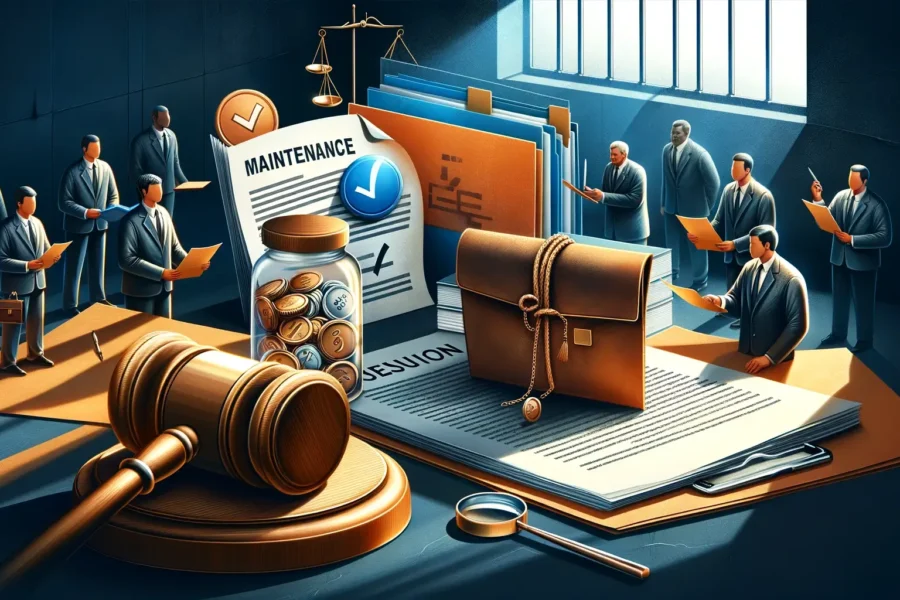In recent years, the Indian judiciary has grappled with the challenges of enforcing maintenance orders effectively. A significant step in this direction was the judgment in Kusum Sharma v. Mahinder Kumar Sharma, delivered by the Delhi High Court, which introduced comprehensive guidelines for adjudicating maintenance cases. In a novel development, the integration of credit information mechanisms like CIBIL (Credit Information Bureau (India) Limited) has emerged as a potential tool to enhance the enforcement and transparency of maintenance obligations.
The Kusum Sharma Judgment: A Landmark Ruling
The judgment in Kusum Sharma v. Mahinder Kumar Sharma (2020 SCC OnLine Del 930) serves as a foundational reference in maintenance cases. The Delhi High Court, under Justice J.R. Midha, laid down extensive guidelines for determining interim and permanent maintenance. These guidelines aimed to ensure that maintenance claims are resolved expeditiously and equitably, balancing the rights and obligations of both parties.
Key directives from the judgment include:
- Affidavits of Income and Assets: Both parties must file detailed affidavits disclosing their income, assets, liabilities, and lifestyle. This disclosure helps courts determine maintenance with greater accuracy.
- Timelines for Adjudication: The Court emphasized the need for adherence to strict timelines to avoid unnecessary delays.
- Transparency and Accountability: The judgment underscored the importance of complete financial disclosure, penalizing any attempt to withhold or misrepresent information.
While these guidelines provided a robust framework, enforcing maintenance orders remained a challenge, particularly in cases where individuals evaded compliance.
Introduction of CIBIL in Maintenance Cases
CIBIL, primarily known for maintaining credit information and assigning credit scores, has recently been recognized as a valuable enforcement tool in maintenance cases. By reporting maintenance defaulters to credit bureaus, courts and claimants can impose financial accountability on non-compliant individuals.
Legal Framework Supporting CIBIL Integration
- Section 125 of the Code of Criminal Procedure, 1973 (CrPC): This provision mandates maintenance for dependents, ensuring financial support to spouses, children, and parents. Courts can utilize mechanisms like CIBIL to ensure compliance with maintenance orders.
- Protection of Women from Domestic Violence Act, 2005: Under Section 20, monetary relief, including maintenance, can be granted to aggrieved parties. Reporting non-compliance to CIBIL aligns with the law’s objective to secure prompt relief.
- Hindu Marriage Act, 1955: Section 24 provides for maintenance pendente lite, while Section 25 allows for permanent alimony. CIBIL reporting can act as a deterrent against willful non-payment.
CIBIL Reporting in Practice
Incorporating CIBIL into maintenance cases involves reporting defaulters to the credit bureau, which adversely affects their credit scores. This creates significant consequences:
- Financial Deterrent: A poor credit score can impact the defaulter’s ability to secure loans or credit cards.
- Public Accountability: Reporting serves as a public record, deterring non-compliance.
- Leveraging Financial Institutions: Banks and financial institutions can deny services to defaulters, increasing pressure to comply with maintenance orders.
Challenges and Criticism
While the integration of CIBIL reporting offers several benefits, it is not without challenges:
- Privacy Concerns: Reporting financial non-compliance to a third-party organization raises questions about privacy rights.
- False Reporting: There is potential for misuse if erroneous or malicious claims lead to unjust credit downgrading.
- Lack of Awareness: Many litigants and even some judicial officers may not fully understand how CIBIL works, limiting its utility.
Judicial Endorsement of Innovative Mechanisms
Courts have started recognizing the potential of modern financial tools in enforcing orders. In Kusum Sharma, the Delhi High Court underscored the importance of ensuring transparency in financial dealings during maintenance proceedings. Extending this principle to include CIBIL reporting aligns with the judiciary’s evolving approach to innovative enforcement mechanisms.
Advantages of Using CIBIL in Maintenance Cases
- Enhanced Compliance: The fear of a poor credit score acts as a powerful incentive for timely compliance.
- Speedier Relief: By reducing evasive tactics, claimants are more likely to receive maintenance on time.
- Judicial Efficiency: Courts can rely on established financial systems to monitor compliance, reducing their enforcement burden.
Steps to Implement CIBIL in Maintenance Cases
- Judicial Orders: Courts must explicitly order reporting to CIBIL in cases of persistent non-compliance.
- Standard Operating Procedures: Clear guidelines should be established for reporting defaulters, protecting against misuse.
- Collaboration with Credit Bureaus: Courts and legal bodies must collaborate with credit bureaus to streamline the process.
Future Implications
The integration of CIBIL reporting into maintenance cases reflects the judiciary’s commitment to leveraging modern tools to address long-standing enforcement issues. It aligns with global practices where financial compliance mechanisms play a central role in family law enforcement.
Conclusion
The judgment in Kusum Sharma has laid the groundwork for transparency and accountability in maintenance proceedings. The integration of tools like CIBIL enhances these objectives by introducing a financial deterrent to non-compliance. As Indian courts increasingly adopt innovative measures, such mechanisms could become a cornerstone of effective maintenance enforcement, ensuring justice for vulnerable parties and reinforcing the rule of law.

